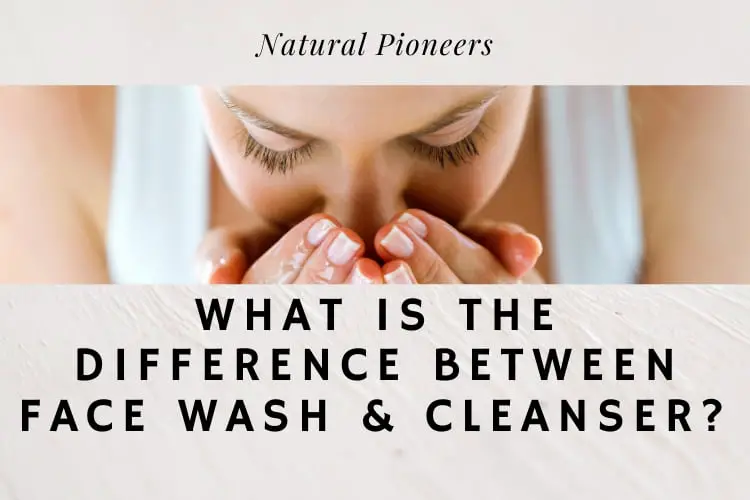
Face washes are for oily, acre-prone skin, right? Not quite. We’ll tell you the difference between face wash and cleanser from a skin perspective. What does our skin really need in terms of ingredients, pH values, moisture, hydration, and toxins.
Contrary to common beliefs, face washes & cleansers come in all textures and can each be formulated to meet the needs of all skin types. Their naming and marketing are what truly distinguishes them. Face washes are marketed to people with oily skin, and cleansers to people with more sensitive skin.
Let’s dive into different ingredients.
1. Ingredients First!
Face washes are for oily, acre-prone skin and cleansers are made for sensitive and dry skin, right? Not quite. While this is commonly believed and marketed that way, it is only half the story.
In most cases, face washes foam upon application and need to be washed off, while cleansers usually have a lotion-like consistency and can be washed or wiped off. However, you can find all types of textures, ranging from foamy, gel-like, creamy to milky ones.
As far as the ingredients are concerned, they both commonly contain a cleaning agent blend, as well as hydrating, and moisturizing ingredients. Additionally, you may find water, preservatives, thickeners, alcohol, foaming agents, and special ingredients for skin disorders (acne, eczema).
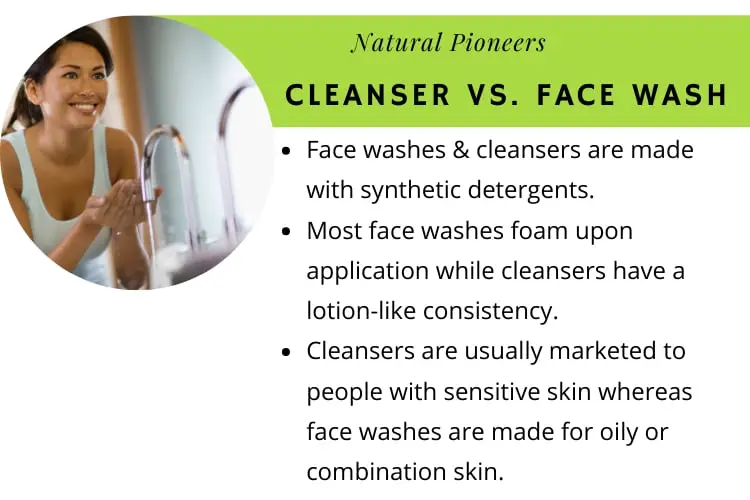
Hydrating & Moisturizing Ingredients
Hydrating and moisturizing ingredients are easier to pronounce than then chemical cleaning agents, and you might know most of them. Here’s what to look for: [1]
| Hydrating Ingredients: | Moisturizing Ingredients: |
| Hyaluronic Acid Glycerin Aloe Honey Snail Mucin Lactic Acid Citric Acid | Nut or Seed Oil (Coconut, Almond, Hemp…) Shea Butter Plant Oils (Jojoba, Rose Hip, Tea Tree) Mineral Oil Lanolin Lactic Acid Citric Acid |
While I’d love to give you a clear distinction between a face wash and a cleanser, there really isn’t one.
Remember this: More often, you’ll find face washes advertised to people with oily and combination skin. And the composition may be slightly harsher than that of a cleanser. Cleansers are more often formulated for normal, dry and sensitive skin. They commonly contain more gentle formulations and more hydrating and moisturizing ingredients.
Making the right choice when it comes to a cleanser and face wash just got harder, you think?
I’d like to invite you to look at it from your skin’s perspective. Why don’t we learn what healthy skin needs and make a choice based on those characteristics instead of chasing marketing claims and pretty designs.
The Take-Away: Face washes and cleansers may contain the same ingredients. Face washes are more targeted towards oily skin while cleansers are more commonly advertised to normal, dry, and sensitive skin. Choosing a product with hydrating and moisturizing ingredients is important.
2. What’s Best For Our Skin?
According to the University of Washington, here’s what healthy skin looks and feels like:
“Healthy skin is smooth, with no breaks in the surface. It is warm (not hot or red) and neither dry and flaky nor moist and wrinkled. Healthy skin is a mirror of a healthy body.“ [2]
So far, so good, how does a face wash or cleanser contribute to healthy skin?
Studies show, that the most important biophysical parameters of healthy skin are the skin pH, epidermal hydration, transepidermal water loss and sebum excretion. [3]
Alright, there we have it. Let’s see what these 4 terms mean and how face washes and cleansers impact them.
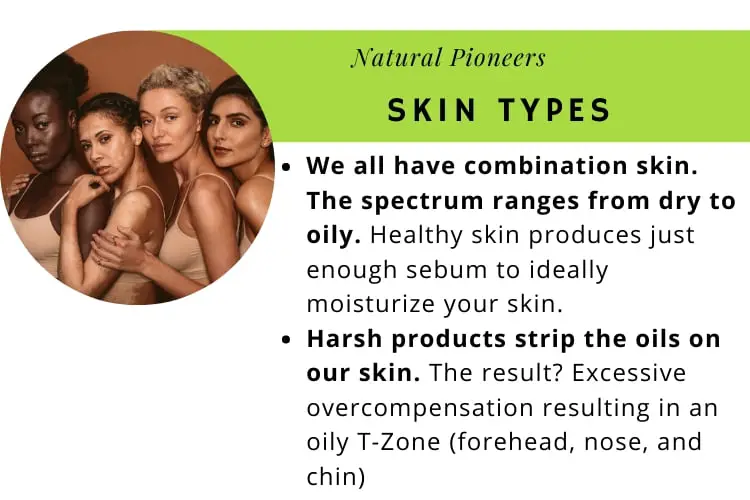
A Healthy Skin pH & Sebum Secretion
The pH is a scale used to specify how acidic or basic something is. Anything between 0 and 6.9 is acidic, 7 is neutral and anything between 7.1 and 14 is considered alkaline. Studies show, that normal skin surface pH is between 4 and 5 in healthy people. [4], [5]
Our skin is the first line of defense against microorganisms, wind, pollutants and more. It is our skins acid mantle that really does the job. The acid mantle is a fine film with a slightly acidic pH on the surface of the skin and provides ideal protection.
So far, we’ve learned that our skin is naturally acidic. It probably comes as no surprise that anything we use to wash our face should not disturb the protective acid mantle.
The ideal pH of a cleaning product (face wash or cleanser) should be acidic, that means it should have a pH of ≤ 5. [6]
However, the market in the United States carries very few low-pH cleansers and face washes. In fact, most cleansers and face washes in the United States are at a pH of 9.5 to 10.5. [7]
But since the ingredients are chemically produced, cleansers and face washes can be composed in a way that results in a neutral or acidic pH, which is preferable.
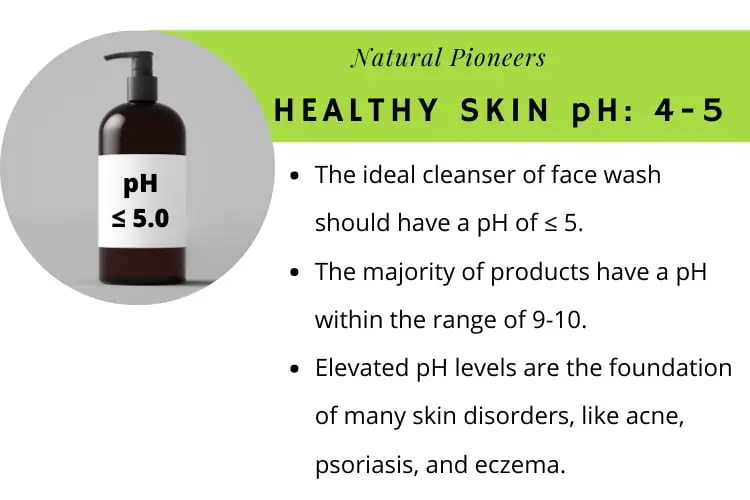
>> Learn more about the pH of shampoos
Another aspect to consider are chemicals in our personal care products. In short, toxins which you’ll find primarily in cleansers and face washes can cause harm to your skin and overall health. Products made with certain surfactants, preservatives, fragrances, or retinyl palmitate can seriously harm our health. Among others, they can cause eye, nose, and throat irritation, kidney and liver damage, allergies, are hormone disruptors, and can cause cancer. [8], [9], [10], [11], [12], [13], [14], [15], [16], [17]
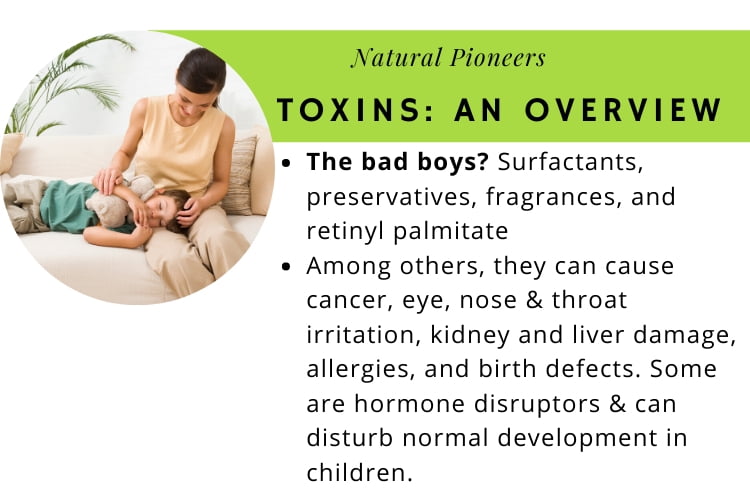
>> Read more about toxins in face washes and cleansers here
The Take-Away: When it comes to the pH of a product, most face washes and cleansers are not formulated to meet our skins needs. Very few products have an ideal pH of ≤ 5. However, cleansers and face washes can be made with ingredients resulting in an acidic pH. As far as toxins are concerned, many cleansers and face washes contain lots of chemicals that can harm our skin and health.
>> You can find pH-balanced cleansers and face washes here
Epidermal Hydration & Transepidermal Water Loss
This might sound complicated – but it really is simple!
Our skin can stay hydrated by itself. Water originates in the deeper skin layers and moves upward to hydrate all layers of our skin. The key is to keep it there and not lose the hydration. Dermatologists often use the term TEWL (transepidermal waterloss) which is the amount of water that passively evaporates through skin to the external environment.
Face washes and cleansers can be made with ingredients that support hydration & moisture. Hydrating means infusing our skin with water & improving our skin’s ability to absorb moisture and nutrients. Whereas moisturizing is about sealing the moisture. This allows your skin to develop a protective barrier. [18]
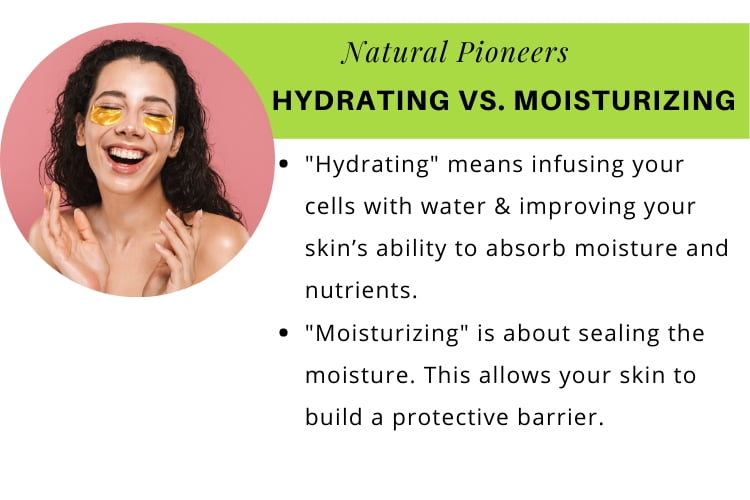
The Take-Away: Hydration & moisture are important for our skin’s health. Depending on the formulation, face washes and cleansers may or may not include valuable hydrating and moisturizing ingredients. Make sure to choose a product with both, hydrating & moisturizing ingredients as shown in our table above.
3. Big Comparison Chart | Face Wash Vs. Cleanser
Let’s put our learnings in two simple charts to have an overview of the facts. We made one chart with common beliefs for you and one that will tell you the truth.
And remember: Choosing the right product for your skin is not a matter of “face wash vs. cleanser” but much more one of finding a composition that is pH-balanced, hydrating & moisturizing (think glycerin & Shea butter), and 100% non-toxic.
Common Beliefs: What Advertisements Like Us To Think
| Face Wash | Cleanser | |
| Texture | Foaming texture | Smooth, gel-like texture |
| Suited for | Oily & combination skin | Normal, dry & sensitive skin |
| Harshness | On the harsher side | More gentle |
| Rinse | Washed off | Can be washed or wiped off |
The Truth: The Difference Between A Face Wash And A Cleanser Is Their Name.
| Face Wash & Cleansers | |
| Texture | They come in all textures: You can find foaming cleansers, gel-like face washes, creamy, milky products & more. |
| Suited for | Both have product lines for oily, combination, normal, dry & sensitive skin. |
| Harshness | Many drugstore-available face washes are harsher and drying than most cleansers. Dermatologist approved non-toxic cleanser are never harsh. The ideal product is non-toxic, pH-balanced and contains hydrating & moisturizing ingredients. |
| Rinse | Depending on the texture they need to be washed or wiped off. |
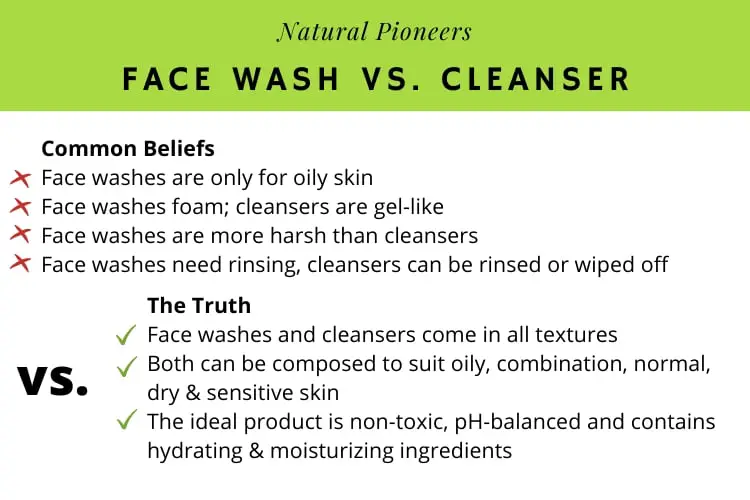
The Take-Away: Regardless of a product being labelled as cleanser or face wash, look for one that is pH-balanced, is hydrating & moisturizing (think glycerin & Shea butter), and 100% non-toxic.
4. Non-Toxic, pH-Balanced, Hydrating & Moisturizing Cleansers
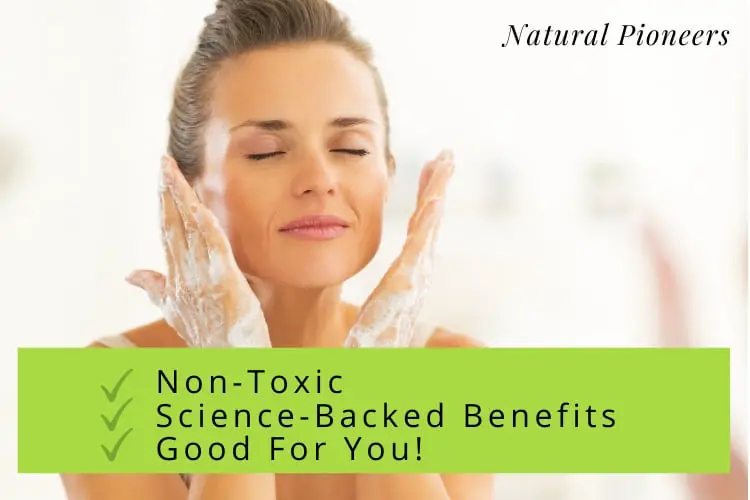
1. Tree To Tub Hydrating Foam Cleanser (Sensitive Skin)
Why We Love It:
- pH-balanced: 5.5
- Safe for people with sensitive skin, psoriasis, eczema, dermatitis, acne & rosacea
- Made with 100% natural lavender essential oil
2. Era Organics Cleanser & Restore Face Wash
Why We Love It:
- pH-balanced: 5.5
- Hypoallergenic
- Boosts healing and repair
3. Annmarie Aloe Herb Cleanser (all skin types)
Why We Love It:
- pH-balanced
- Recommended by physicians
- “Fall in love or money back guarantee” by Annmarie
4. Juice Beauty Blemish Clearing Cleanser
Why We Love It:
- All juice Beauty products are pH-balanced
- Deeply cleanseing and clarifying
- Bottled in recycled plastics – Thumbs up!
5. Drunk Elephant Pekee Bar
Why We Love It:
- pH-balanced: 6.51
- Gentle, multi-tasking bar that cleanses, tones and moisturizes
- Comes in a fun travel duo with case
5. Conclusion
Contrary to common beliefs, face washes and cleansers come in all textures and can each be formulated to meet the needs of oily combination, normal, dry, or sensitive skin. It is the formulation of a cleanser or face wash that determines whether it is suitable for our face. Dermatologist approved non-toxic cleanser are never harsh. The ideal product is non-toxic, pH-balanced and contains hydrating & moisturizing ingredients.
The ideal cleanser or face wash supports our skin’s health. Studies show, that the most important biophysical parameters of healthy skin are the skin pH, epidermal hydration, transepidermal water loss and sebum excretion. Both, cleansers and face washes can be formulated in a pH-balanced, non-toxic & hydrating/moisturizing manner.
For soap bars, Natural Pioneers recommends the Pekee Bar. Ideal cleansers include Annmarie Aloe Herb Cleanser, Juice Beauty Blemish Clearing Cleanser, and Tree To Tub Hydrating Foam Cleanser. A face wash that matches all of our criteria is Era Organics Cleanser & Restore Face Wash.
